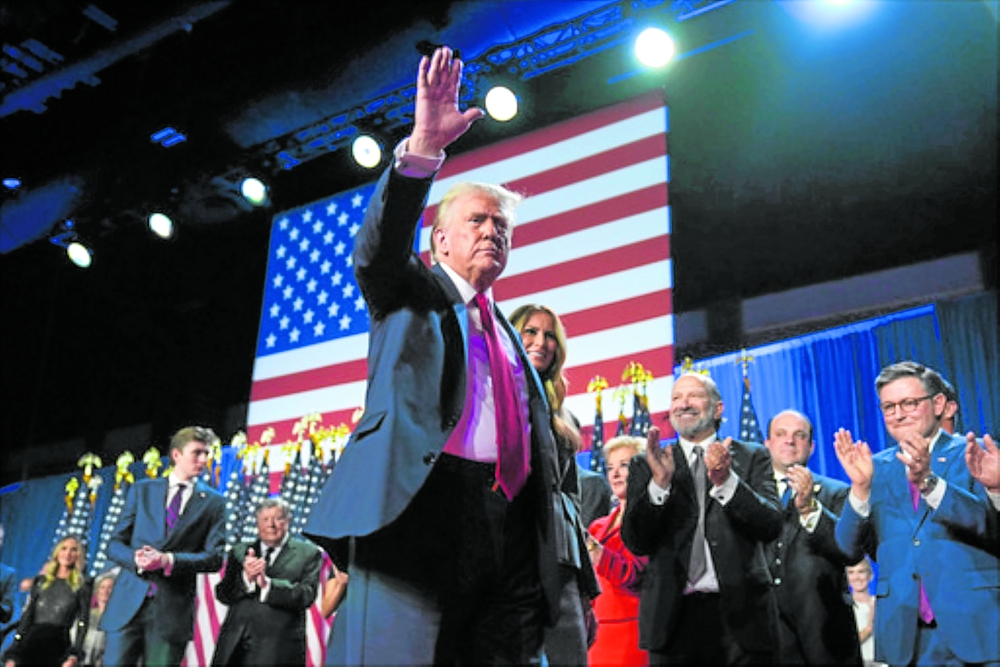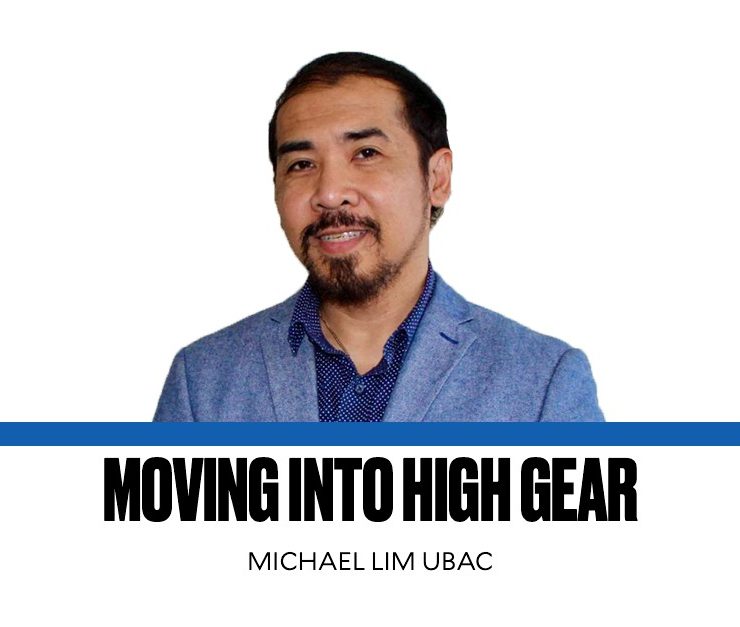The long wait for a woman president
The news of former president Donald Trump’s advancing lead in the United States presidential race just before noon on Wednesday (Manila time) was either received with consternation or glee, depending on which side of the political aisle one is on.
Just before dusk, Trump’s lead over his rival, Vice President Kamala Harris, was already insurmountable—267 to 224—which meant that the Republican candidate only needed three more electoral college votes to regain the presidency he lost in 2020.
But as The New York Times (NYT) reported, “the daylight between Vice President Kamala Harris and former President Donald J. Trump was growing. And in swing state after swing state, the advantage was moving in the same direction: Trumpward.”
At 6:36 p.m., The Associated Press (AP) called the race for Trump, declaring him as the 47th US president. He secured his victory by winning Wisconsin (10 electoral votes) which put him over the 270-threshold (277).
Trump’s victory at the US polls was “an extraordinary comeback for a former president who refused to accept defeat four years ago, sparked a violent insurrection at the US Capitol, was convicted of felony charges and survived two assassination attempts,” AP said, but failing to mention that Trump was impeached twice by the House, only to be acquitted by the Senate in those two occasions.
The NYT roared with a banner story on its website: “Trump storms back: Stunning return to power after dark and defiant campaign.” The story was framed by two sidebars with opposing story angles that seem to address two irreconcilable audiences.
“His win opens a new era of uncertainty for the Nation,” according to the headline of the story to the Left, supported by two major reasons in bullet points why Trump defeated Harris: he played on fears of immigrants and economic anxieties; and he won despite “a criminal conviction, indictments, an assassin’s bullet, accusations of authoritarianism, and an unprecedented switch of his opponent.”
The story in the right column was a space for “Updates from Reporters,” a conversation thread on the ongoing vote count. Jonathan Weisman explained that “Voters chose Trump as the stronger leader for uncertain times and as one they saw as a proven economic champion.”

Three questions
In order to make sense of what has happened, we have to ask at least three questions.
First, despite all the negative issues hurled at him, why did Trump, 78, still win?
Early analysis from media and polling pundits in the US indicated that he capitalized on fears of the American public about the economy (inflation), immigration, and crimes. Besides his core of loyal supporters, he converted Latino and Black working-class voters—a constituency that should naturally go with Harris—and “connected with so many Americans,” NYT said, because “he gets us.”
This may sound ironic as the Harris campaign ran on a platform of inclusion and diversity, and was seen as pro-immigrant and pro-women.
But Trump’s surprising success in getting the Latino vote also answers the second question, “What went wrong for Harris?”
In an article using the same question as its title (11/7/24), Agence France-Presse (AFP) reported that Trump’s “support among African Americans rose by single digits and jumped by double digits among Hispanics—a deeply worrying trend for Democrats.”
The demographics of these Hispanic voters include “Mexican American males, evangelicals, not college educated, working class… a steady movement towards Trump,” said AFP, quoting professor Roberto Suro.
Harris campaigned for women’s rights and was embraced by younger crowds at her rallies. However, AFP noted that “Against all expectations, Trump did better than in 2020 with women—despite abortion rights being a key campaign issue—and among youth.”
The AFP had to concede, in a separate story, that “Americans must wait for their first woman president.”
Ironclad allies
Third, will a Trump presidency change the dynamics of Philippine and US relations?
US Ambassador to the Philippines MaryKay Carlson assured that, regardless of the outcome of the US elections, a “strong bipartisan support” from both the Republican and Democratic parties exists on Capitol Hill, ensuring that the two countries remain as “steadfast friends and ironclad allies.”
Carlson doesn’t see any problems with a second (non-consecutive) Trump presidency coming into office amid Manila’s conflict with Beijing over the West Philippine Sea.
She noted that it was “under the Trump administration that (then) Secretary of State (Mike) Pompeo came out and lent credence and support to the arbiter ruling that weighed in favor of the Philippines with regard to access and rights (to its exclusive economic zone).”
At the U.S. presidential election watch in Makati on Wednesday, Carlson highlighted that “the election and the democratic process do not end on election day. As the playwright Tom Stoppard famously said, ‘It’s not the voting that’s democracy; it’s the counting.'” She said that “waiting for results is a sign that the process is working as intended, and that all votes are being counted.”
“When political parties compete freely on a level playing field; when voters’ rights are respected; and when election outcomes are upheld with the peaceful transition of power, societies are more prosperous and secure. And if governments fall short, voters can vote the other way the next time. That’s the power of democratic elections,” the U.S. ambassador said.
She also talked about how citizens have a stake in the outcome of every election and how voting can hold candidates accountable.
“That’s how we, as citizens in a democracy, shape government policies. Voting is a privilege, but it also comes with obligations. Which brings me to another less-well-known quote by Abraham Lincoln who said, ‘Elections belong to the people. It’s their decision. If they decide to turn their back on the fire and burn their behinds, then they will just have to sit on their blisters,’” Carlson stressed.
At the end of the day, democracy is the real winner in this consequential electoral contest because the speed with which Trump was declared the undisputed winner and the early decision of Harris to concede the election will ensure a peaceful transfer of power on Jan. 20, 2025. This gives Trump the latitude to form new alliances and hopefully fulfill his pledge to “help our country heal.”


















